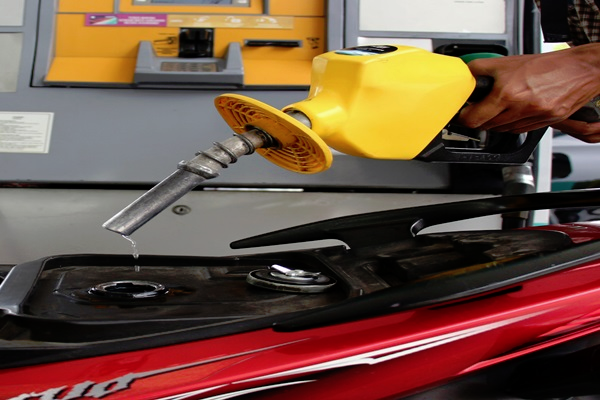News
How tariffs are determined for energy consumers
By Yong Soo Heong
KUALA LUMPUR, April 30 (Bernama) -- As the next six-month deadline (June 30) draws nearer for the Energy Commission (EC) to reflect changes in fuel and generation costs in electricity tariffs, some quarters expect to see electricity tariffs being reduced to match the international pricing of gas and coal.
As two-thirds of our electricity bill come from fuel and generation costs, lower international prices of gas and coal recently may have triggered such expectations.
Coal and gas are the two primary fuel in generating electricity in Peninsular Malaysia. Around 41 per cent of the power plants are coal-fired and 47 per cent more are natural gas plants. Naturally, this implies Malaysia is susceptible to global fuel prices.
Of late, spot coal cargo prices for exports from Australia's Newcastle terminal have fallen by more than 25 per cent from US$118 per tonne in July 2018 to about US$88 per tonne currently.
Asian liquid natural gas (LNG) spot prices for May deliveries reportedly dropped more than 60 per cent from US$11.81 per MMBtu in September 2018 to around US$4.65 this week.
So, can the easing coal and gas prices in recent weeks translate into rebates?
Of interest here is that the tariff structure has not changed since 2014. Under the current Imbalance Cost Pass-Through (ICPT) mechanism, the EC reflects changes in fuel and generation costs in the electricity tariffs, either as a rebate or surcharge in a review done every six months. And this is subject to government approval.
The current ICPT mechanism is for between Jan 1 and June 30, 2019 while the next is from between July 1 and Dec 31, 2019.
The mechanism falls under the framework of the Incentive-based Regulation (IBR) that was introduced in 2014. In line with global standards, ICPT promotes a fair and transparent tariff setting.
Tariffs are determined by the EC when it evaluates the pricing structure and cost of fuel every six months with a six-month lag in implementation.
If the overall actual cost of fuel in the previous six months is higher than the forecasted cost of production of electricity, then a surcharge will be imposed on consumers in the subsequent six months. But if the actual cost is lower, then consumers can enjoy a reduction or rebate in the following six months.
The current average base tariff, as decided last year is 39.45 sen per kWh. The rate is usually reviewed once every three years as the EC has set that level of base tariff for 2018, 2019 and 2020.
Every six months, the EC looks at the international pricing structure and compares it to the base fuel price of generating electricity, to determine whether there would be a ICPT surcharge or a rebate, said an industry source.
“This allows for a structured, transparent and informed way of tariff setting taking into cognisance huge requirement for capital expenditure (CAPEX) and operational expenditure (OPEX) by power utilities, including TNB,” she added.
From the above scenarios, a pertinent point must also be taken into account here: although prices of coal and gas have come down, their levels are still above the forecasted fuel prices used to arrive at the base tariff of 39.45 sen per kWh. This is because the assumption that the international markets pricing of coal averages are at US$75 per tonne and piped gas at RM27.20 per mmBtu from 2018 to 2020.
This may prove difficult for the EC to reduce tariffs for the time being unless coal and gas prices slip past their yardstick base prices.
-- BERNAMA
Other News
Sarawak Lepasi Sasaran Kapasiti Gabungan Tenaga Boleh Baharu Tahun Ini - Abang Johari

Oleh Nur Ashikin Abdul Aziz
SINGAPURA, 21 Okt (Bernama) -- Sarawak mencapai 62 peratus sasaran campuran kapasiti tenaga boleh baharu (TBB) tahun ini, melepasi sasaran 60 peratus yang digariskan dalam Strategi Pembangunan Pasca COVID-19 (PCDS) 2030.
Sarawak Pacu Pertumbuhan Tenaga Boleh Diperbaharui Untuk Manfaat ASEAN - Premier

SINGAPURA, 21 Okt (Bernama) -- Sarawak komited menyokong peralihan tenaga boleh diperbaharui di Asia Tenggara dengan memanfaatkan potensinya sebagai "Bateri ASEAN," yang akan membekalkan tenaga bersih menerusi sambungan Grid Kuasa Borneo dan ASEAN.
Belanjawan 2025 Percepat Peralihan Kepada Tenaga Bersih - Solarvest

KUALA LUMPUR, 19 Okt (Bernama) -- Belanjawan 2025 merupakan satu langkah ke arah mempercepat peralihan kepada tenaga bersih di Malaysia, kata Solarvest Holdings Bhd.
© 2025 BERNAMA. All Rights Reserved.
Disclaimer | Privacy Policy | Security Policy This material may not be published, broadcast,
rewritten or redistributed in any form except with the prior written permission of BERNAMA.
Contact us :
General [ +603-2693 9933, helpdesk@bernama.com ]
Product/Service Enquiries [ +603-2050 4466, digitalsales@bernama.com ]
